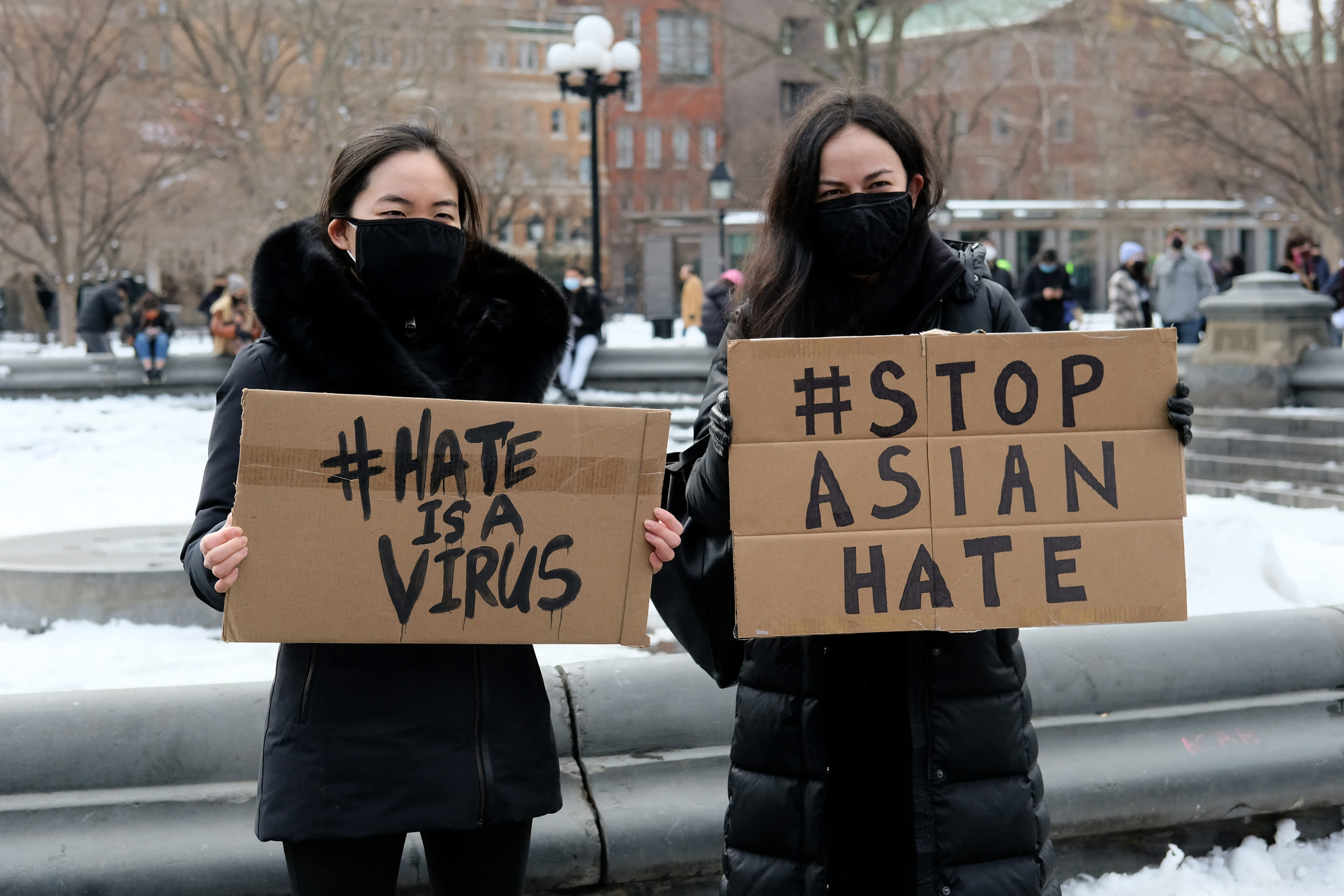Time to say no to anti-Asian hate and violence
Delaina Yaun, the mother of a 13-year-old son and an 8-month-old daughter, had a date with her husband Tuesday afternoon at a spa outside Atlanta, Young’s Asian Massage. Soon after they arrived, Yaun was shot dead. So were Xiaojie Tan, Daoyou Feng, and Paul Andre Michels. A gunman had attacked the business. In total, he killed eight people at three spas and critically injured another. Soon C. Park, Hyun Jung Grant, Suncha Kim, Yong A. Yue were also killed. Six of the victims were of Asian descent. Seven were women.
The Atlanta killing spree has provoked something enormous, something untamed from within the Asian American community: a kind of ferocious anger, exasperation, horror, and desperation that have long been dormant in our collective consciousness. The feelings we hadn’t given ourselves the space to feel—the capacity to grieve our people and reckon with our experiences as Asian Americans—have now inevitably, painfully surfaced. And it’s about time. [I invite you to continue reading at the Christian Century]
I want to pick up on something Grace writes later in the article: She speaks to the way in which the police, the media, and much of America quickly moved from a narrative of anti-Asian bigotry and violence to an alternative explanation. You see, the assailant, in his confession, claimed that he didn't target these spas because they were owned and operated by Asian women, but because they were a temptation to him, as he has a sexual addiction. Thus, no hate involved, and we can go back to putting our heads in the sand and Asian-Americans remain invisible. As Grace points out in the essay, Asian-Americans are beginning to step out and tell their stories. They are pushing against the narrative, both that they are to blame for the pandemic, and that they can be ignored by the wider society.
Grace closes her essay with these words that I wish to leave with you:
If you aren’t Asian American, please listen to our stories of discrimination, suffering, marginalization, racism, and racialization. Please hear our pain when we say that the shootings in Atlanta feel like a hate crime against our community. Please know that misogyny and the fetishizing of Asian women are deeply connected with racism and colonialism. Please fight against anti-Asian hatred so it will stop demoralizing us, demonizing us, and killing us. ["The Atlanta shootings have awakened a ferocious anger and grief among Asian Americans"]
May we, who are not part of the Asian-American community, have ears to hear and hearts to respond to these cries for justice. #StopAsianHate

Comments